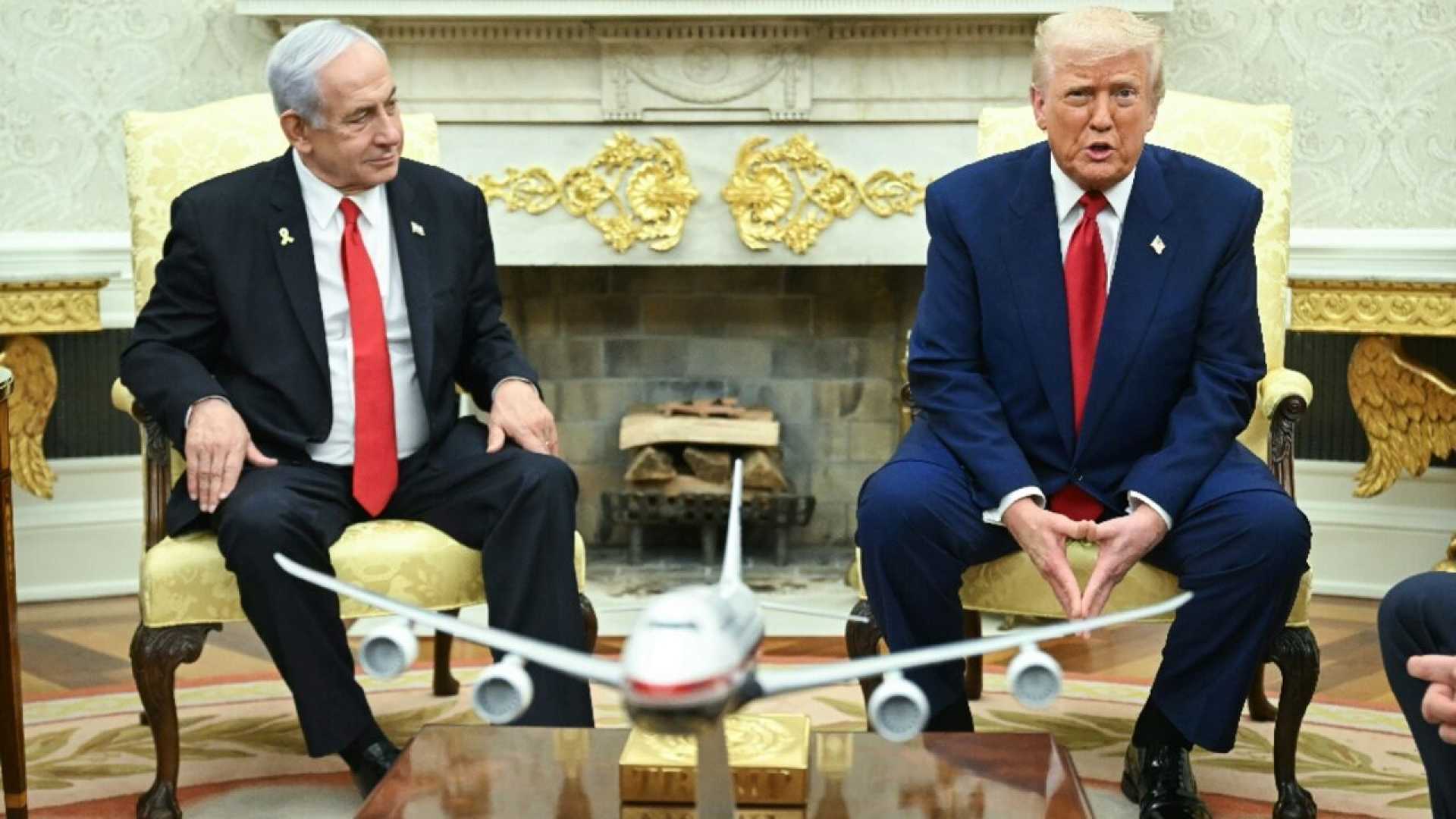Politics
Netanyahu Faces Tough Biden Meeting Amid Gaza Conflict

TEL AVIV, Israel (AP) — Israeli Prime Minister Benjamin Netanyahu made a sudden trip to Washington this week intending to discuss pressing issues including Iran’s nuclear ambitions, President Donald Trump’s economic tariffs, Turkey’s influence in Syria, and the ongoing war in Gaza. However, after the hour-long meeting at the White House, it was clear that Netanyahu returned to Israel with minimal progress on his agenda.
Netanyahu’s whirlwind visit, scheduled on short notice, marked a significant departure from his previous successful engagement with Trump two months earlier. During this meeting, Trump seemed to challenge numerous aspects of Netanyahu’s strategies, marking a shift in their dynamic during Trump’s second term.
Despite the apparent setbacks, Netanyahu described the trip as a success, labeling it a “very good visit.” However, sources within the Israeli delegation indicated that the atmosphere was more strained than the prime minister portrayed, suggesting he left Washington without the expected commitments from Trump.
“He didn’t hear exactly what he wanted to hear, so he returns home with very little,” said Nadav Eyal, a commentator for Yediot Ahronot. This is significant as Netanyahu was expected to bolster support for Israel regarding pressing diplomatic and security challenges.
Issues surrounding Iran’s nuclear program were foremost on Netanyahu’s list. Since Trump withdrew the U.S. from the Iran nuclear deal in 2018, Netanyahu has advocated for military pressure against Iran, an approach that has led to heightened tensions between the two countries. In a recent interview, Trump hinted at potential military actions should Iran fail to engage in negotiations, but he also announced upcoming talks between the U.S. and Iran, which clashed with Netanyahu’s more aggressive stance.
“We agree that Iran must not have a nuclear weapon,” Netanyahu noted when addressing the fluctuating dialogue with Trump. Nevertheless, he cautiously inched towards a more diplomatic approval by suggesting parameters similar to Libya’s agreement in 2003, although it is still uncertain whether Trump will impose such strict conditions.
Netanyahu’s delegation aimed to address economic challenges posed by Trump’s recently announced tariffs, specifically a new levied rate on Israeli exports. This visit marked the first instance where an international leader confronted Trump regarding these tariffs, but Trump remained resolute in asserting that the existing U.S. military aid of $4 billion per year to Israel was sufficient, leaving little room for negotiation on tariff relief.
Netanyahu also sought to discuss Turkey’s growing influence in Syria, which Israel views as a serious threat. Following the overthrow of Bashar al-Assad, Turkey’s strategic position in Syria has increasingly worried Israel. During their discussions, Trump praised Turkish President Recep Tayyip Erdogan, suggesting a mediator role rather than outright support for Netanyahu’s position.
“There’s no unconditional love here. The relationship is contingent, and it depends on Israel’s conduct,” remarked Udi Sommer, a U.S.-Israel relations expert from Tel Aviv University.
Conversations about the ongoing war in Gaza, amid rising casualties, appeared to take a backseat as Trump focused more on economic issues, despite Netanyahu’s emphasis on the plight of Israeli hostages held by Hamas. While Netanyahu seeks to continue military actions against Hamas, Trump expressed a desire to see hostages returned and the war conclude in a timely manner.
In response to Netanyahu’s request for solidarity amid the conflict, Trump’s tone suggested a shift towards expectations for a quicker resolution to hostilities than Netanyahu’s current strategy may allow.












